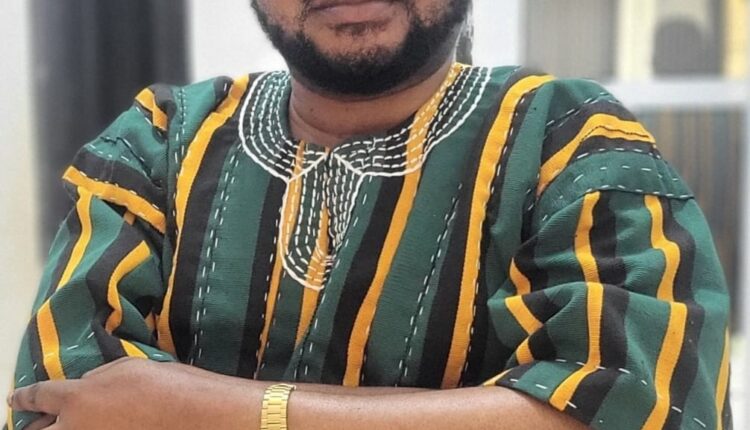To revitalize literary education within Ghana’s basic school system, the National Council for Curriculum and Assessment (NaCCA), in partnership with the Ghana Education Service (GES) and the West African Examinations Council (WAEC), has officially adopted The Beacon of Light as the new mandatory literature text for Junior High Schools (JHS). This recently approved text, authored by Joshlyn Yayra Diabo, Adam Ankrah, Bryte Okrah, and Lucas Zanyoh, replaces The Cock Crow, which has been in use for over 15 years.
The change marks a substantial transformation in how literature is understood and taught within the framework of Ghana’s Standards-Based Curriculum, aligning teaching methods with contemporary competencies and national educational objectives (NaCCA, 2019).
A Literature Text Tailored for 21st-Century Learners
Unlike its predecessor, The Beacon of Light is crafted to foster critical thinking, ethical considerations, creativity, and problem-solving skills among students. As stated by NaCCA (2024), the book “has been thoughtfully designed to align with the Standards-Based Curriculum and address the evolving moral, social, and cognitive needs of today’s learners.” These competencies are vital in a world where students must not only comprehend texts but also interpret their environment.
According to Rosenblatt (1995) literature can be described as “an experience lived through, where meaning emerges from the interaction between the reader and the text.” In this framework, The book encourages students to connect personal experiences with the themes presented in the stories. By tackling relevant issues such as identity, leadership, environmental stewardship, peer pressure, and resilience, the anthology reflects the real-life experiences of Ghanaian youth. This fosters what Nussbaum (2010) terms “narrative imagination” the capacity to empathize with the circumstances of others.
Supporting Material
The main literature text is supplemented by The Beacon of Light Commentary, written by Victoria Stevens, Dr. Jemima Larteley Mensah, and Very Rev. Ebo Ephraim. This commentary provides valuable pedagogical support for educators and students. It offers thorough analyses of literary techniques, themes, and character arcs. This aligns with findings from instructional research highlighting the importance of teacher resources for effective literature delivery (Fisher & Frey, 2014).
Transitioning from The Cock Crow: A Necessary Upgrade?
For over 15 years, The Cock Crow served as the standard literature text for Junior High Schools in Ghana. However, its extended use contributed to educational stagnation in various aspects. According to NaCCA (2024), “the repetitive nature of assessment due to familiarity with the old text limited innovative responses from students and hindered authentic literary comprehension.” Scholars such as Applebee (1996) maintain that literature should continuously evolve in education to reflect changing cultural narratives and social values. Thus, the replacement of The Cock Crow signifies a renewal of a curriculum that rejuvenates literary discussions in schools and injects fresh concepts and themes into the Basic Education Certificate Examination (BECE).
Furthermore, this shift aligns with the philosophy of the new curriculum, which emphasizes learner-centred education, relevant content, and practical applications (MoE, 2019). By introducing new literature, Ghana’s education system mitigates the risk of relying on an outdated literary canon that fails to resonate with modern students.
Addressing National Curriculum Objectives
The inclusion directly connects with the goals of Ghana’s Standards-Based Curriculum, which aims to equip students with essential skills such as communication, teamwork, and personal development (NaCCA, 2019). When chosen thoughtfully, literature serves as a vital avenue for boosting these competencies.
Research conducted by Darling-Hammond et al. (2019) indicates that “educational content must be culturally relevant and intellectually challenging in order to adequately prepare students for a global society.” In this context, the themes explored in The Beacon of Light including social justice, moral integrity, empathy, and resilience offer a rich foundation for students to engage in moral reasoning and civic education.
Moreover, it enables educators to implement project-based assessments, character education, and performance tasks that encourage critical thinking and creative expression skills central to 21st-century education (Trilling & Fadel, 2009).
Cultivating a Culture of Literary Transformation
Beyond its academic significance, The Beacon of Light symbolizes a broader shift in educational culture. It highlights the necessity for curriculum design to remain dynamic, inclusive, and responsive to societal evolution. It underscores the value of literature not only as a subject of study but also as a transformative force in students’ lives.
As Martha Nussbaum (2010) poignantly observes, “the development of empathy and understanding through literature prepares individuals to respect one another and collaborate towards shared goals.” Therefore, the true impact of The Beacon of Light will not solely be reflected in exam results but in its influence on the character, critical thinking, and compassion of Ghana’s future leaders.
Conclusion
The choice of the book as the new literature text for Junior High Schools represents a commendable and timely advancement. With its rich thematic content, engaging narratives, and supportive pedagogical resources, it is poised to enhance the teaching and learning of literature. NaCCA, GES, and WAEC have made a significant commitment to ensuring educational content remains relevant, reflective, and transformative.
The responsibility now rests with educators, school leaders, and district authorities to ensure the effective implementation of this literary resource. With dedicated effort and support, The Beacon of Light will not only illuminate educational paths but also foster ethical and reflective citizenship among Ghana’s youth.
WRITTEN BY: WISDOM KOUDJO KLU, EDUCATION EXPERT/COLUMNIST, GREATER ACCRA REGION. [email protected]


Comments are closed.